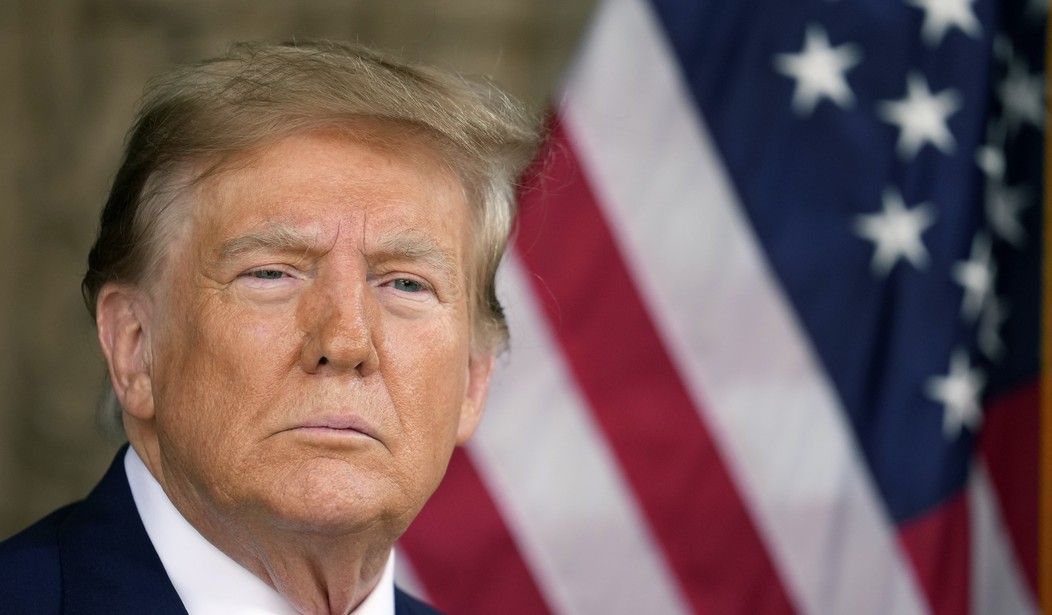It will be only a matter of time before former President Donald Trump officially becomes the Republican presidential nominee. When that happens, the general election will be in full swing as President Biden prepares for the rematch.
Polling over the recent months has shown both candidates in a virtual dead heat.
But several surveys, such as one published by The Economist on Friday, show the former president with a slight lead over Biden at 45 percent to 43 percent. This seems to suggest that Trump has a good chance of winning a second term in the White House.
However, looming large over the former president’s campaign is the myriad of politically motivated indictments against him. Much to the dismay of the left, it seems unlikely that any of these efforts to prosecute him will be concluded until after the 2024 election has been decided, which could create a complex dynamic if Trump defeats Biden.
The question is: How will these indictments affect another Trump presidency?
The indictments Trump is currently facing include charges coming from New York that he falsified business records prior to his presidency, a federal case related to his alleged mishandling of classified documents, and Fulton County, Georgia’s election interference case. The former president is currently looking at 91 total charges, many of which are criminal.
Firstly, if Trump becomes president again, his administration could be under siege by legal challenges that might distract from legislative and policy priorities. If this happens, he and his team will have to devote tremendous energy and resources to combating efforts to weaponize the legal system against him. This could hamper his ability to perform his duties.
It is worth noting, however, that it is not entirely clear that a sitting president could be indicted for charges at the local and state levels. But the possibility of the federal cases against him being prosecuted is far less likely.
In the two federal cases, a likely outcome would be that a Trump-appointed attorney general would withdraw the charges.
The Justice Department does not indict sitting presidents, a policy outlined in a 1973 memo, during the Nixon era. It has never had reason to develop a policy on what to do with an incoming president who has already been indicted. But the rationale for not indicting sitting presidents — that it would interfere with their ability to perform their duties — applies just as well in this hypothetical scenario.
“The reasons why we wouldn’t want to indict a sitting president are the reasons we wouldn’t want to prosecute a sitting president,” said Professor Chemerinsky, who has disagreed with the department’s reasoning. “My guess is, if the Trump prosecution were still ongoing in some way and Trump were elected, the Justice Department — which would be the Trump Justice Department — would say, ‘We’re following the 1973 memo.’”
Of course, this is Trump we’re talking about here, and there could be forces within the Justice Department who might be willing to ignore the 1973 memo in this case.
The second issue is the inevitable increased polarization resulting from continued efforts to prosecute him while he is in office. Democrats and their close friends and allies in the activist media will no doubt freak out if America elects Trump again. They will once again go full “Orange Man Bad” in their efforts to disrupt his presidency, a reality that will not be lost on Independent and Republican voters.
Moderates and right-leaning Americans already view these indictments as politically motivated efforts to shape the outcome of the upcoming election. If they continue their crusade against him after he wins the White House, it will only further ratchet up an already tense political environment and result in more division – especially if they hamper his ability to execute his duties.
There is also a chance that the continued weaponization of America’s legal system could affect the country’s global standing. It could appear to U.S. allies and enemies that America is less stable and reliable, which could negatively impact the nation’s influence on the world stage.
Lastly, it is almost certain that Democrats and anti-Trump Republicans would exploit his legal woes to launch another impeachment effort. In fact, it would not be surprising to see multiple attempts to impeach Trump if he wins the presidency, depending on the makeup of Congress. If Democrats manage to regain control of both chambers of the legislature, it is entirely possible that they would even vote to remove him, which would further exacerbate political tensions.
If Trump manages to win a second term, there can be no doubt that it will bring about some tumultuous times ahead.













